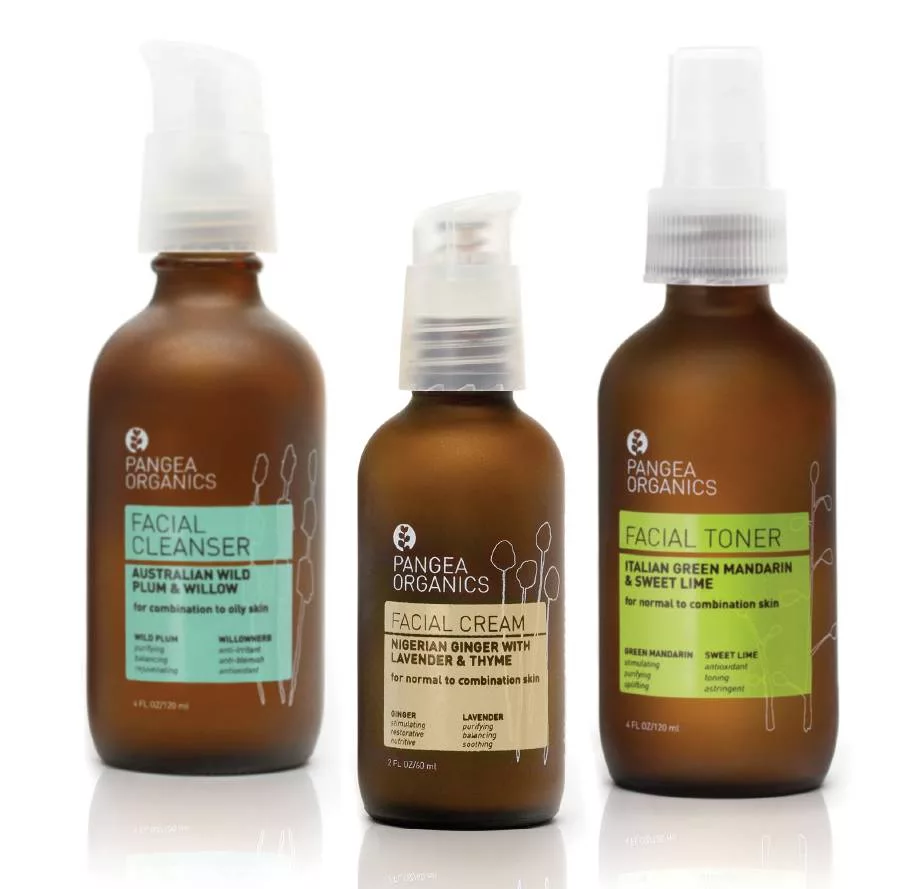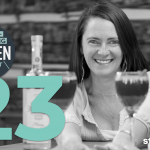THE GOODS
•Organic
•Cruelty-free
•Fair Trade (whenever possible)
•Handcrafted
•Responsible packaging
•Non-GMO ingredients
Tell us about the moment when you decided to start Pangea Organics and what that decision looked like for you.
Joshua Onysko: So, as you guys have found out – you’re among the few and the proud who have figured out that fear is your biggest ally when you allow it to be your motivator, right? So, you guys took off, and most people just let fear push them down. Congratulations, first of all. You won.
Thank you!
JO: In 1999, I woke up in Jackson Hole, Wyoming, and I decided to move to India to ride the trains. I called my mom in Rhode Island – my poor mom – and I was like, “Mom, I’m moving to Bombay in two months to ride the trains.” And she’s like, “Do you watch the news? You’re going to get killed! Blah, blah, blah.” And I said, “Don’t worry, I’m coming home in two weeks to visit you.”
I went home and we were making dinner and I saw this little coffee table book, How to Make Natural Soap. I thought, “Oh, making soap, this is interesting,” and I started reading it and thought, “You can go to Whole Foods in Providence and buy all these ingredients. This is the perfect bonding project to do with my mom before I go get killed in India!”
I went to Whole Foods and I smelled essential oils for the very first time. I picked oils out and bought olive oil and vegetable oil and then I went to the hardware store and bought lye and some goggles. I came home and I surprised my mom with everything and she got all excited because she had never made soap.
We made a batch of soap and the next morning we cut it up and we gave it away. I threw some bars in my backpack and I took off to India. I ended up traveling for almost two years through India, Nepal, Tibet, China, Hong Kong, Macau, Tokyo, Thailand, and Cambodia and hitchhiked up to Alaska, then went back to Asia.
I was sitting in Cambodia in the Angkor Wat temples with my best friend in the world, Tom, who I’d been traveling with on and off. And I was just burnt out – emotionally and physically. I’d run out of money so many times and had done weird things like sold “Rolexes” in a red light district and sold peaches on the side of the Ganges. I was just done. I was verging on depression and I knew I wanted to come back to America and start something. I decided I was going to start a soap company and Tom, literally right off the bat, said, “You should call it Pangea.” And I felt it.
I was on a flight three days later, went back to Jackson, packed up my stuff into a footlocker, told all my friends I was moving to Boulder to start a soap company and eleven people ended up coming down with me. We rented a house and I turned the garage into a soap factory with beer kegs with the top cut off and burners and handmade soap molds. I sold soap on the Pearl Street Mall. I’d go to the Red Rocks parking lot during concerts and to farmers’ markets and church bazaars – anywhere there were people, I was selling soap. Then we got our first retail account and then our second. Our seventh was ABC Carpet & Home in New York, a pretty famous five-story super high-end home décor store, which gave us a big push. Then I started getting deep into alchemy and realized that everything in body care was just crap, both from the way it actually worked to how it was being marketed and what was really in it. Even if you read the ingredients, it would leave you confused.
One of our biggest manufacturers told me in confidence once that 70 percent of the products he makes for brands that sell in the natural products industry omit ingredients from the ingredient label in order to be able to make it through the standards. 70 percent! And he said, “It makes me sick, but I can’t do anything.”
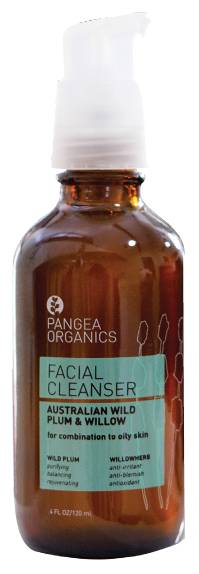
“FEAR IS YOUR BIGGEST ALLY WHEN YOU ALLOW IT TO BE YOUR MOTIVATOR.”
Is that illegal?
JO: No, and who’s checking? Nobody. Everyone thinks the cosmetics industry is regulated by somebody. I’m like, “It’s regulated by you.” From the very beginning, I’ve always said, “No matter what, we’re going to list all of our ingredients. We’re going to be constantly innovating to make the cleanest, most effective skin and body care products in the world.” We’ll always be organic, but I always tell people that that comes second to me because it’s always going to be there.
It’s not just about being organic though – it’s about being organic and making products work. If you put out a product that’s sub-par and it’s organic, you’re just hurting the industry because people are having a bad experience with an organic product. We pride ourselves on being on the fringe of innovation constantly when it comes to preservation, efficacy, and emulsification.
Our products have to work and they have to outperform anything that you can buy in Sephora or at a cosmetics counter at Whole Foods. Unless we can do that, we’re not going to win over the global market. So we’ve always set out to exceed people’s expectations when it comes to efficacy.
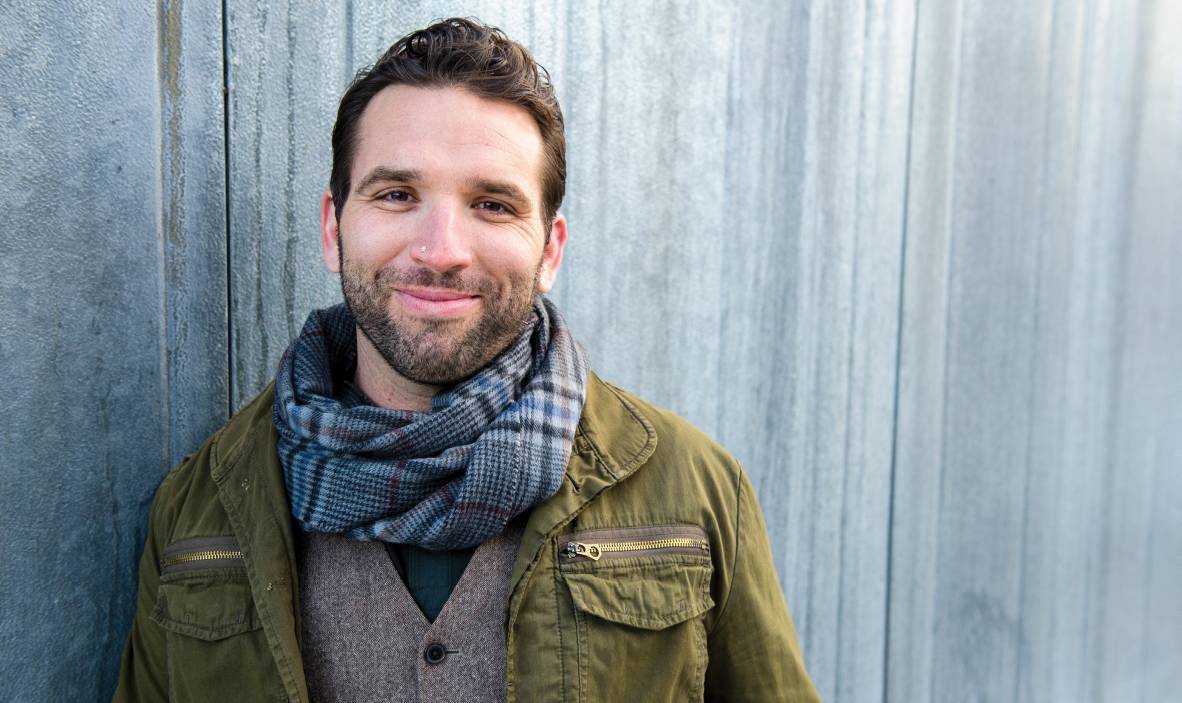
“AN ENTREPRENEUR IS SOMEONE WHO HAS THE WILLINGNESS TO FAIL ENOUGH TIMES TO FIND SUCCESS.”
Will you give us an example of the most recent success that Pangea has had?
JO: We pulled out of retail. The company was thirteen years old, had retail contracts in nineteen different countries, and had the stores that every new business thinks of as the golden chalice – Whole Foods, Sephora, Macy’s, Nordstrom – but we pulled out. There’s a couple different reasons why.
First, I felt like if we were going to stay in retail, I was going to have to lower our standards in order to lower our costs in order to compete with what was in the market, which I never would have done, and which is why I needed to find an alternative. Every day at Whole Foods, we’d go in and the buyers would say, “Oh, there’s this new organic brand.” I’d look at it and it was just Chinese packaging and crap. I constantly had to explain myself at that level and deal with all of the buyers and compete with twenty thousand different SKUs in a department. Retail is dying. Retail is going out of business, and they’re fighting and clawing with margin wars on the way down.
Pulling out of retail breathed life back into me as far as what Pangea was about. Pangea is really about inspiring people to make changes. That could be a change in the way you take a shower or how you think about where ingredients are coming from or your relationships with the farmers all around the world. When I used to sell soap at the Boulder farmers’ market, I would look at people and say, “When you use this soap, you’re affecting communities in up to 12 different countries with one bar.”
Right now, it takes 6.9 million acres of land to grow the ingredients that we use in our products, and Pangea is a tiny brand. As our company grows and we have these Independent Pangea Business Owners all over the country, we’re explaining to them that the work that they’re doing selling Pangea is changing the world. They are increasing the amount of organic agriculture in communities around the world, and I’m not talking about Longmont, I’m talking about places where people didn’t have access to clean water because of how toxic the agriculture was. They’re directly changing that.
How’s it going so far?
JO: It’s been amazing. I mean, the first year was pretty rough because the mistakes I made are the mistakes that people told me I was going to make. The cool thing about pioneering something is that you jump in even though you know you are going to make mistakes. You know you’re going to fail. On a recent motorcycle trip, a group of us were sitting around a campfire one night and drinking God-only-knows how many bottles of wine, and we were trying to figure out what the definition of an entrepreneur is. By sunrise, we came up with this: an entrepreneur is someone who has the willingness to fail enough times to find success.
Willingness is the key word, right? We all decided that we had failed so many times that success was bound to happen. When I got into direct sales, I knew there were going to be failures, and I knew what they were going to be, but we finally put the right team together – I hired a CEO from the MLM world, a VP of sales, and a head of technology – and just rebooted the entire thing. It’s amazing how different it is.
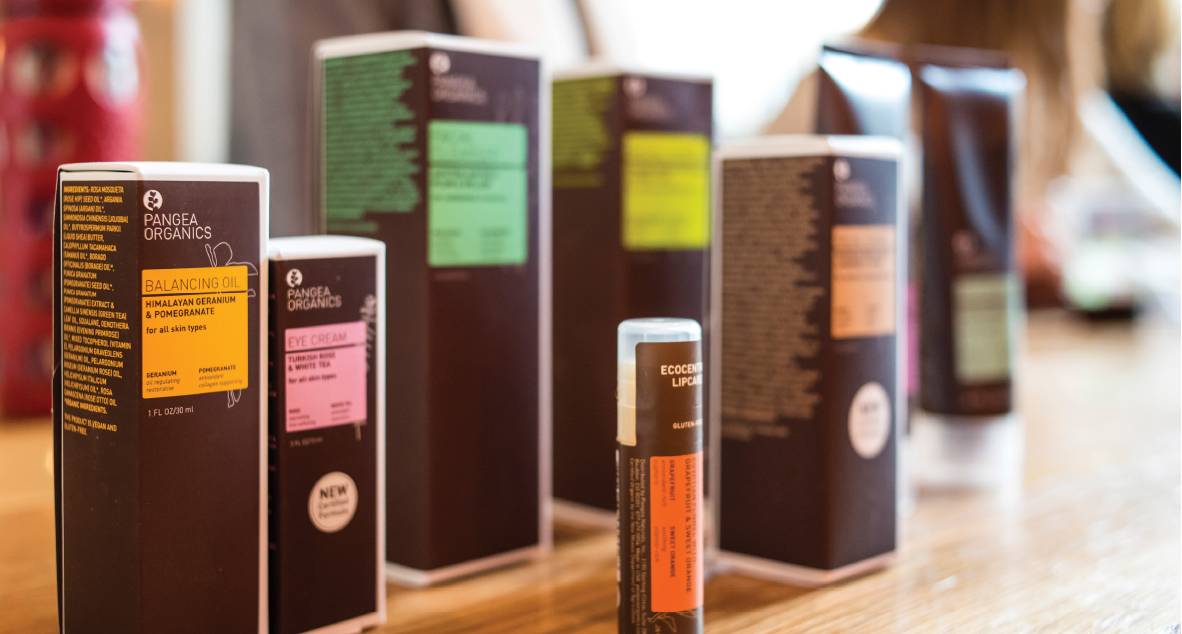
Can you tell us more about your relationships with the farmers that produce your ingredients?
JO: We source from 50 different countries, and a good part of my job is meeting with these farmers all over the world – from two hours up the Nile from Cairo where a good chunk of our organic essential oils are produced, to the family that grows our seaweed on the Oregon coast.
When we were creating our mud mask, which is our number one product, there were two types of seaweed I wanted to use: gigartina and wakame. There’s three places you can get those seaweeds:
1) China, 2) Chile, or 3) the Oregon and California coasts. Both China and Chile have the same type of practices – they have these machines that literally clear cut the ocean floor and destroy everything. They grind it up and you don’t even know what’s in the powder – it’s got some seaweed, some shellfish, some whatever.
We found this amazing family living in southern Oregon and they were hand-harvesting the seaweed. It was four times the cost, but I didn’t care. Two years ago, I rode my motorcycle out there. We got up at like 3:30 a.m. and we drove down to the beach where that closing scene of The Goonies was filmed, and we all got into wetsuits and we went down to the ocean. John and Carrie, the husband and wife team who harvest the seaweed, went down to the ocean at low tide and did a tobacco offering and literally did a prayer to the ocean for providing their sustenance because this is how they make their living.
They went in and they picked one out of every four plants to leave the ocean floor intact. John said to me, “If I do it this way, when I come back in two months, it’s all revegetated and I affected nothing. If I take all four, when I come back here there’ll be nothing here.” When you try to tell that story when your product is on a shelf, it’s next to impossible. But as I travel around the country and we have these summits and I explain this to our Independent Pangea Business Owners, they tell that story to their customers and those customers tell it to their customers and so forth.
That’s why I love this business model, because it’s a pure connection, and the bigger we get, the more I have the ability to fly to different places and tell people about it.
What is your personal definition of a conscious or sustainable company?
JO: I think that my short off-the-cuff definition is a company that inherently cares and takes action on the things it cares about.
What have been some of the biggest challenges that you’ve faced in the name of upholding your standards?
JO: We’ve given up tens of millions of dollars’ worth of business because we have a line that we drew that we don’t cross. Two big retailers came to us in 2008 and wanted to do “Pangea Light” – the Pangea naturals brand. They said, “Here’s nine million dollars and this is what we’ll do, and we’ll take the branding and do this.”
I was at home that night and I was just like, “Fuck no.” I don’t want to wake up and be that guy, because at that point I had met so many people who had started businesses with these amazing ethics and then someone came and waved a check at them.
I knew that the money wasn’t going to make me happy. I was already happy. So why do something that I didn’t want to do? I’ve been blessed to be surrounded by amazing investors and board members who truly believe in Pangea and they’ve been sticking it out with us for 15 years. That’s unique. Not a lot of brands have that. We don’t have any VC money, and the people who’ve invested in Pangea invested because of our ethics.
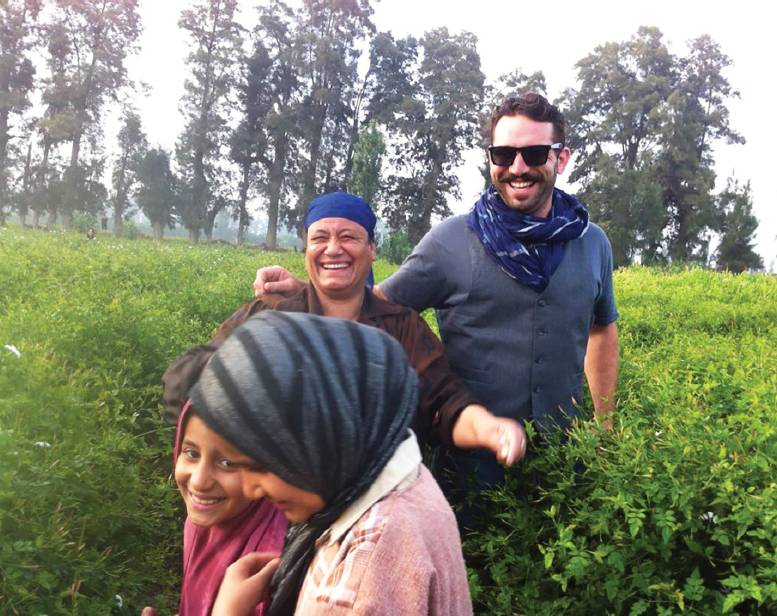
“EVERYONE THINKS THE COSMETICS INDUSTRY IS REGULATED BY SOMEBODY… IT’S REGULATED BY YOU.”
What is the best advice you’ve received on building a successful business?
JO: I would say that one of the biggest lessons in life the past two years has been (and you hear this all the time) find your real skill set – you know, what you’re really, really good at. Entrepreneurs like you guys are going to figure out that you’re good at everything. You can go out and raise money and get interviews and pitch people, but after about the first 15 or 16 months, you should get together and say, “What am I really good at? There’s one thing I’m really good at.” Just focus on that and then surround yourselves with people who can do everything else.
What has been an effective leadership style for you? What pieces of wisdom would you impart to other people who are going into leadership positions?
JO: It’s the age old “lead by doing” advice. It really works. People see the way that I live and sometimes they make changes based on that, and if they come to me and ask, “Why are you a vegan? Why do you wear this? Why do you do that?” I’ll take the time to talk to them and really explain why.
Another thing I would say is that the fringe always predicts the future. At my events, I always say, “Whatever seems wingnut and crazy now is going to become commonplace.” I remember when Boulder banned smoking indoors. It was the second town in America to ban smoking. Now it’s like half the country.
We’re seen as this cutting-edge town, but we’re stewards of a fringe that we know will become the future. So right now, whatever Pangea is doing, in the future it’s just going to be common and that’s why it’s important if you’re going to put yourself out there. Don’t just do something cool and sit on your laurels and think that you’re going to change the world that way. You have to constantly be stewarding that fringe, because the rest of the world is following you. And if you just sit there and do nothing once you’ve done one thing that’s cool, then everyone’s going to pass you by and you’re not going to be inspiring people anymore. You’re just going to be that company that one time did that thing, you know?
Besides financials, what metrics do you consider important as a company?
JO: The metric I’m trying to develop in my department is: what are we displacing? Because that’s what we’re doing – we’re not creating things that people aren’t currently using, we’re creating things that people are already using. So, every time I replace someone’s shower gel with our shower gel, I’m displacing 14 chemicals in their family. Period. There’s 4.2 people using that shower gel every day and if the family replaces everything with Pangea, it can be up to 297 chemicals that have been displaced through Pangea products.
As we create more products that displace other companies’ products, we’re displacing more chemicals. The average woman in America puts 500 chemicals on her body a day before she leaves the house. People at events always say, “Oh, I only use like five products.” I’m like, “Let’s go into your bathroom.” One spray of perfume: 240 chemicals, and it has isopropyl alcohol, so it’s going right into your bloodstream. Deodorant: 19 chemicals. One blush could have 42 chemicals in it. And they just don’t know, right? So I start adding it all up on my phone and I say, “You don’t use 500, but you use 301.” And it’s pretty easy to get rid of all of these. It’s not work – it’s simple. If you treat your body like an outhouse, it’ll treat you like shit. If you treat it like a temple, it’ll treat you like a god.
